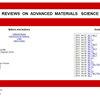利用当代增强集合技术估算可持续土工聚合物混凝土的抗压和抗拉强度
IF 3.6
4区 材料科学
Q2 MATERIALS SCIENCE, MULTIDISCIPLINARY
引用次数: 0
摘要
土工聚合物混凝土(GPC)是一种具有环保意识的传统混凝土替代品,可为建筑需求提供可持续的解决方案。现场改造的能力取决于混凝土浇筑后的强度,而混凝土的强度必须高于目标值。因此,在浇筑前预测混凝土的强度非常有用。本研究提出了三种集合机器学习(ML)方法,包括梯度提升法、AdaBoost 回归法和极端梯度提升法,作为预测含有玉米芯灰的 GPC 机械强度的潜在方法。为确定哪些建模参数至关重要,采用了敏感性分析。当使用集合 ML 模型测试 GPC 的抗压强度和劈裂拉伸强度时,发现预测结果和实际结果之间的 R 2 值超过 90%。统计和基于误差和判定系数的 k 倍分析被用来验证所开发的模型。如敏感性分析所示,炉渣量、固化龄期和细集料量是对 GPC 机械强度影响最大的三种混合比例。这项研究的结果表明,集合提升方法可以可靠地估算 GPC 的机械强度。将此类程序纳入 GPC 质量控制可带来显著改善。本文章由计算机程序翻译,如有差异,请以英文原文为准。
Compressive and tensile strength estimation of sustainable geopolymer concrete using contemporary boosting ensemble techniques
Geopolymer concrete (GPC) serves as an environmentally conscious alternative to traditional concrete, offering a sustainable solution for construction needs. The ability to make on-site changes is dependent on the concrete’s strength after casting, which must be higher than the target value. To anticipate the concrete’s strength before it is poured is, thus, quite helpful. Three ensemble machine learning (ML) approaches, including gradient boosting, AdaBoost regressor, and extreme gradient boosting, are presented in this work as potential methods for forecasting GPC’s mechanical strength that incorporates corncob ash. To determine which modeling parameters are crucial, sensitivity analysis was employed. When the compressive strength and split-tensile strength of GPC were tested with ensemble ML models, R 2 values of more than 90% were discovered between the predicted and actual results. Statistics and a k -fold analysis based on the error and coefficient of determination were used to verify the developed models. Slag amount, curing age, and fine aggregate quantity were the three mix proportions that had the most impact on GPC’s mechanical strength, as shown in the sensitivity analysis. The results of this study demonstrated that ensemble boosting approaches could reliably estimate GPC mechanical strength. Incorporating such procedures into GPC quality control can yield significant improvements.
求助全文
通过发布文献求助,成功后即可免费获取论文全文。
去求助
来源期刊

Reviews on Advanced Materials Science
工程技术-材料科学:综合
CiteScore
5.10
自引率
11.10%
发文量
43
审稿时长
3.5 months
期刊介绍:
Reviews on Advanced Materials Science is a fully peer-reviewed, open access, electronic journal that publishes significant, original and relevant works in the area of theoretical and experimental studies of advanced materials. The journal provides the readers with free, instant, and permanent access to all content worldwide; and the authors with extensive promotion of published articles, long-time preservation, language-correction services, no space constraints and immediate publication.
Reviews on Advanced Materials Science is listed inter alia by Clarivate Analytics (formerly Thomson Reuters) - Current Contents/Physical, Chemical, and Earth Sciences (CC/PC&ES), JCR and SCIE. Our standard policy requires each paper to be reviewed by at least two Referees and the peer-review process is single-blind.
 求助内容:
求助内容: 应助结果提醒方式:
应助结果提醒方式:


